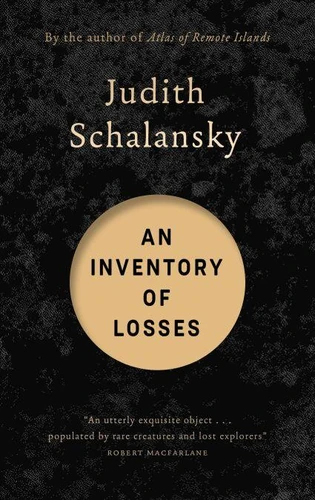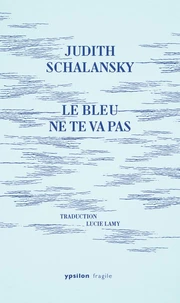An Inventory of Losses. WINNER OF THE WARWICK PRIZE FOR WOMEN IN TRANSLATION
Par : ,Formats :
Disponible dans votre compte client Decitre ou Furet du Nord dès validation de votre commande. Le format ePub protégé est :
- Compatible avec une lecture sur My Vivlio (smartphone, tablette, ordinateur)
- Compatible avec une lecture sur liseuses Vivlio
- Pour les liseuses autres que Vivlio, vous devez utiliser le logiciel Adobe Digital Edition. Non compatible avec la lecture sur les liseuses Kindle, Remarkable et Sony
- Non compatible avec un achat hors France métropolitaine
 , qui est-ce ?
, qui est-ce ?Notre partenaire de plateforme de lecture numérique où vous retrouverez l'ensemble de vos ebooks gratuitement
Pour en savoir plus sur nos ebooks, consultez notre aide en ligne ici
- Nombre de pages256
- FormatePub
- ISBN978-1-5294-0077-9
- EAN9781529400779
- Date de parution03/06/2020
- Protection num.Adobe DRM
- Infos supplémentairesepub
- ÉditeurMacLehose Press
Résumé
**Winner of the WARWICK PRIZE FOR WOMEN IN TRANSLATION and the HELEN AND KURT WOLFF TRANSLATION PRIZE****Winner of the Society of Authors' FIRST TRANSLATION AWARD****Longlisted for the INTERNATIONAL BOOKER PRIZE**"A fine example of everyone's favourite genre: the genre-defying book, inspired by history, filtered through imagination and finished with a jeweller's eye for detail" JOHN SELF, Guardian"As we deal with the consequences, emotional and material, of a pandemic, it is hard to imagine a better guide to the resources of hope than Schalansky's deeply engaging inventory" MICHAEL CRONIN, Irish Times"Weaving fiction, autobiography and history, this sumptuous collection of texts offers meditations on the diverse phenomena of decomposition and destruction" Financial Times "Books of the Year""Pure gold storytelling" SJONJudith Schalansky's strange and wonderful new book, recalling writers as different as W.
G. Sebald and Christa Wolf, Joan Didion and Rebecca Solnit, sees her return to the territory she explored so successfully with her best-selling Atlas of Remote Islands: Fifty Islands I Have Never Set Foot On and Never Will, which Robert MacFarlane called "utterly exquisite" (Guardian) and about which Time Out's reviewer said "Rarely has armchair travel been so farflung and romantic". Judith Schalansky is a wholly original writer whose books articulate perfectly what she wishes to say.
Each of the pieces, following the conventions of a different genre, considers something that is irretrievably lost to the world, including the paradisal pacific island of Tuanaki, the Caspian Tiger, the Villa Sacchetti in Rome, Sappho's love poems, Greta Garbo's fading beauty, a painting by Caspar David Friedrich, and the former East Germany's Palace of the Republic. As a child of the former East Germany, it's not surprising that the dominant emotion in Schalansky's work should be "loss" and its aftermath, but what is extraordinary is the thoroughly engaging mixture of intellectual curiosity, down-to-earth grasp of life's pitiless vitality, ironic humour, stylistic elegance and intensity of feeling that combine to make this book a masterpiece and one of the most original and beautifully designed books to be published in 2020.
Translated from the German by Jackie Smith
G. Sebald and Christa Wolf, Joan Didion and Rebecca Solnit, sees her return to the territory she explored so successfully with her best-selling Atlas of Remote Islands: Fifty Islands I Have Never Set Foot On and Never Will, which Robert MacFarlane called "utterly exquisite" (Guardian) and about which Time Out's reviewer said "Rarely has armchair travel been so farflung and romantic". Judith Schalansky is a wholly original writer whose books articulate perfectly what she wishes to say.
Each of the pieces, following the conventions of a different genre, considers something that is irretrievably lost to the world, including the paradisal pacific island of Tuanaki, the Caspian Tiger, the Villa Sacchetti in Rome, Sappho's love poems, Greta Garbo's fading beauty, a painting by Caspar David Friedrich, and the former East Germany's Palace of the Republic. As a child of the former East Germany, it's not surprising that the dominant emotion in Schalansky's work should be "loss" and its aftermath, but what is extraordinary is the thoroughly engaging mixture of intellectual curiosity, down-to-earth grasp of life's pitiless vitality, ironic humour, stylistic elegance and intensity of feeling that combine to make this book a masterpiece and one of the most original and beautifully designed books to be published in 2020.
Translated from the German by Jackie Smith
**Winner of the WARWICK PRIZE FOR WOMEN IN TRANSLATION and the HELEN AND KURT WOLFF TRANSLATION PRIZE****Winner of the Society of Authors' FIRST TRANSLATION AWARD****Longlisted for the INTERNATIONAL BOOKER PRIZE**"A fine example of everyone's favourite genre: the genre-defying book, inspired by history, filtered through imagination and finished with a jeweller's eye for detail" JOHN SELF, Guardian"As we deal with the consequences, emotional and material, of a pandemic, it is hard to imagine a better guide to the resources of hope than Schalansky's deeply engaging inventory" MICHAEL CRONIN, Irish Times"Weaving fiction, autobiography and history, this sumptuous collection of texts offers meditations on the diverse phenomena of decomposition and destruction" Financial Times "Books of the Year""Pure gold storytelling" SJONJudith Schalansky's strange and wonderful new book, recalling writers as different as W.
G. Sebald and Christa Wolf, Joan Didion and Rebecca Solnit, sees her return to the territory she explored so successfully with her best-selling Atlas of Remote Islands: Fifty Islands I Have Never Set Foot On and Never Will, which Robert MacFarlane called "utterly exquisite" (Guardian) and about which Time Out's reviewer said "Rarely has armchair travel been so farflung and romantic". Judith Schalansky is a wholly original writer whose books articulate perfectly what she wishes to say.
Each of the pieces, following the conventions of a different genre, considers something that is irretrievably lost to the world, including the paradisal pacific island of Tuanaki, the Caspian Tiger, the Villa Sacchetti in Rome, Sappho's love poems, Greta Garbo's fading beauty, a painting by Caspar David Friedrich, and the former East Germany's Palace of the Republic. As a child of the former East Germany, it's not surprising that the dominant emotion in Schalansky's work should be "loss" and its aftermath, but what is extraordinary is the thoroughly engaging mixture of intellectual curiosity, down-to-earth grasp of life's pitiless vitality, ironic humour, stylistic elegance and intensity of feeling that combine to make this book a masterpiece and one of the most original and beautifully designed books to be published in 2020.
Translated from the German by Jackie Smith
G. Sebald and Christa Wolf, Joan Didion and Rebecca Solnit, sees her return to the territory she explored so successfully with her best-selling Atlas of Remote Islands: Fifty Islands I Have Never Set Foot On and Never Will, which Robert MacFarlane called "utterly exquisite" (Guardian) and about which Time Out's reviewer said "Rarely has armchair travel been so farflung and romantic". Judith Schalansky is a wholly original writer whose books articulate perfectly what she wishes to say.
Each of the pieces, following the conventions of a different genre, considers something that is irretrievably lost to the world, including the paradisal pacific island of Tuanaki, the Caspian Tiger, the Villa Sacchetti in Rome, Sappho's love poems, Greta Garbo's fading beauty, a painting by Caspar David Friedrich, and the former East Germany's Palace of the Republic. As a child of the former East Germany, it's not surprising that the dominant emotion in Schalansky's work should be "loss" and its aftermath, but what is extraordinary is the thoroughly engaging mixture of intellectual curiosity, down-to-earth grasp of life's pitiless vitality, ironic humour, stylistic elegance and intensity of feeling that combine to make this book a masterpiece and one of the most original and beautifully designed books to be published in 2020.
Translated from the German by Jackie Smith







